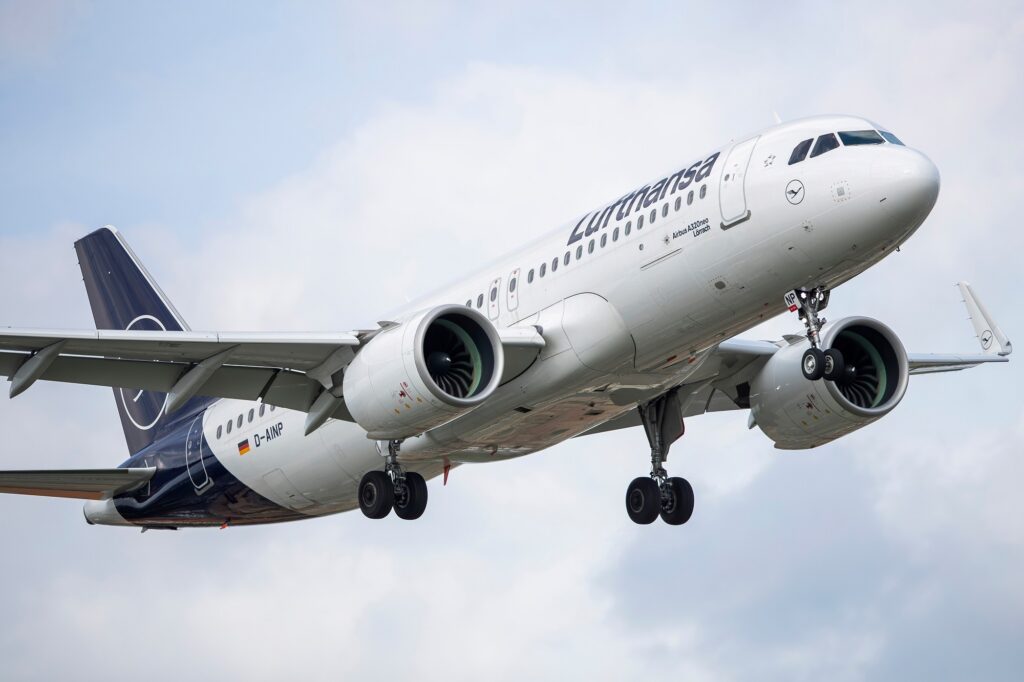In a recent update to investors, RTX, the parent company of Pratt & Whitney, said that between 600 and 700 PW1100G engines will have to be removed for inspections between 2023 and 2026.
“As a result, Pratt & Whitney expects a significant increase in aircraft on ground [AOG] levels for the [PW1100G] powered A320 fleet throughout 2024 – 2026,” the RTX update continued.
The company disclosed that some engines would need to be removed as soon as possible, with some requiring inspection no later than September 15, 2023.
In response to the increased number of AOG, the engine maker developed a fleet management plan for the remaining fleet of engines, “requiring a combination of a repetitive inspection protocol, at an interval of between approximately 2,800 and 3,800 [flight] cycles [FC], and part life limits of between approximately 5,000 and 7,000 cycles, for high pressure turbine disks and high-pressure compressor disks”.
Pratt & Whitney expects to release the fleet plan in a service bulletin (SB) to customers “within the next 60 days” after it discusses the strategy with regulators.
“The actions set forth in the [special instruction (SI)] and SB are anticipated to result in approximately 600 to 700 incremental shop visits between now and the end of 2026 beyond Pratt & Whitney’s forecast entering 2023,” RTX said.
Most engines will be removed in 2023 and early 2024, resulting in a significant increase in the AOG of PW1100G-powered jets between 2024 and 2026.
The Pratt & Whitney PW1100G, also known as the Geared Turbofan (GTF), is one of two choices for Airbus A320neo aircraft family operators, with the other being the CFM International LEAP-1A.
According to ch-aviation.com data, there are 1,359 Airbus A320neo family aircraft, including the A319neo, A320neo, and A321neo and its variants, powered by the PW1100G. Out of those, 242 are marked as being either in storage or undergoing maintenance.
Meanwhile, there are 1,576 CFM International LEAP-1A-powered Airbus A320neo family aircraft, with 76 stored or in maintenance.
$3 billion charge
While Pratt & Whitney is still unable to provide a final estimate on the operational impact of the accelerated engine inspections, RTX has already booked a $3 billion pre-tax charge in Q3 2023.
The company also disclosed that for the next several years, the problem will impact its pre-tax operating profit by between $3 billion and $3.5 billion, “inclusive of an approximately $3 billion pre-tax charge in Q3, after partners’ share of charges”.
Still, RTX highlighted that Pratt & Whitney is trying to increase industrial output and maintenance shop capacity to reduce the operational impact as much as possible. In addition, the engine maker is assessing whether the powder metal problem will impact other engine models, but the current assumption is that “other models will be far less impacted based on existing inspections, lower utilization profiles and/or existing maintenance intervals”.
Meanwhile, RTX stated that the $3 billion Q3 2023 charge includes “estimates of potential compensation and other consideration for customer fleet disruption and the one-time Estimate-at-Completion (“EAC”) impact of estimated incremental costs to long-term maintenance contracts as a result of this matter”.
The GTF engine family also exclusively powers the Airbus A220 (PW1500G), Embraer E2 (PW1700G/PW1900G), SpaceJet (PW1200G), and Russia’s MC-21 (PW1400G). However, Mitsubishi canceled the SpaceJet program in February 2023, because sanctions imposed on Russia due to its invasion of Ukraine have prevented the further development and/or export of the PW1400G engine into Russia.
RTX first disclosed the rare condition in powder metal used to manufacture parts of the PW1100G engine during the company’s Q2 2023 results presentation in July 2023. At the time, the aerospace manufacturer said the problem would affect “a significant portion of the PW1100G-JM engine fleet”.
At the time, RTX did not provide an estimated material impact on its business or its customers.

